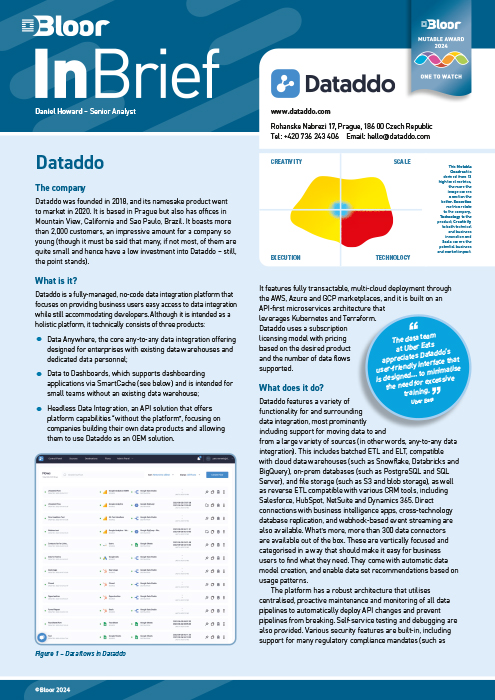Dataddo
Published On 19th, Jun 2024 Content Copyright ©
2024 Bloor, All Rights Reserved.
2024 Bloor, All Rights Reserved.
Classification
- InBrief
Dataddo is a fully-managed, no-code data integration platform that focuses on providing business users easy access to data integration while still accommodating developers. Although it is intended as a holistic platform, it technically consists of three products:
- Data Anywhere, the core any-to-any data integration offering designed for enterprises with existing data warehouses and dedicated data personnel;
- Data to Dashboards, which supports dashboarding applications via SmartCache (see below) and is intended for small teams without an existing data warehouse;
- Headless Data Integration, an API solution that offers platform capabilities “without the platform”, focusing on companies building their own data products and allowing them to use Dataddo as an OEM solution.
It features fully transactable, multi-cloud deployment through the AWS, Azure and GCP marketplaces, and it is built on an API-first microservices architecture that leverages Kubernetes and Terraform. Dataddo uses a subscription licensing model with pricing based on the desired product and the number of data flows supported.
Research By
Related Technologies
Related Companies
Connect with Us
Ready to Get Started
Learn how Bloor Research can support your organization’s journey toward a smarter, more secure future."
Connect with us Join Our Community


